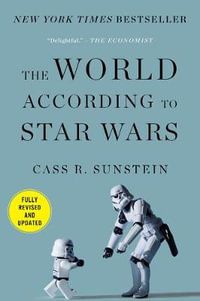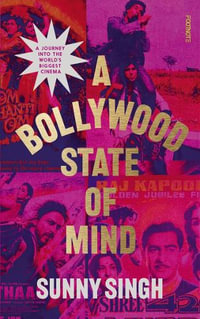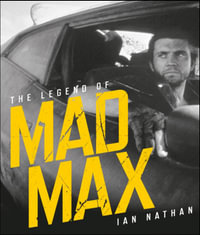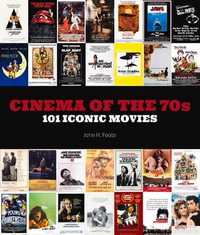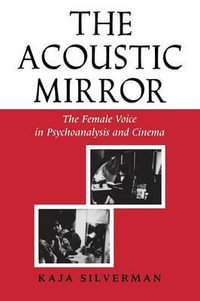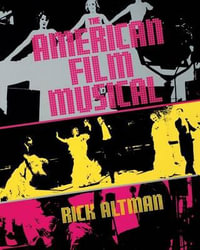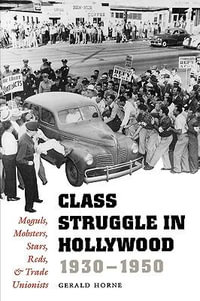
Zombie Talk
Culture, History, Politics
By: John Edgar Browning, David Castillo, David Schmid
Hardcover | 15 December 2015
At a Glance
140 Pages
26.04 x 18.42 x 1.91
Hardcover
$100.16
Aims to ship in 7 to 10 business days
Industry Reviews
Reader Report on First Draft
Aviva Briefel
Professor of English and Cinema Studies
Bowdoin College, USA
I am grateful to have had the opportunity to review the proposal for The Zombie Dialogues: Culture, History, Politics. However, while it presents some very interesting observations about the horror genre and monstrosity more generally, the proposal as it stands (including the three chapters included with it) does not offer a sustained analysis of the figure of the zombie through 'an array of disciplinary and theoretical approaches.' In fact, the project often steers away from the zombie to examining other figures of monstrosity. While in another context this approach might provide a useful point of comparison through which to examine the monster in question, the impulse in the included chapters especially in Chapter 4 is to look beyond this figure altogether to make broader, and sometimes overly general claims, about monstrosity as an umbrella category. When the object of focus is the zombie, as in Chapter 1, the discussion tends to rely on observations about this monster that have already been explored by other critics (this first chapter relies too heavily on Gregory Waller's reading of the zombie). For its part, Chapter 2 makes some gripping observations about the zombie genre (including the point on page 4 about the historical specificity of narratives of the fear of dying), but then turns to a catalogue of insufficiently analyzed or connected example. Finally, on a broader level, it concerns me that the project as a whole only contains four chapters, two of which have already been published elsewhere.
With substantial revisions and restructuring, the project could make a worthwhile contribution to the field of zombie studies. But I do think that this would entail a substantial project overhaul to focus more intently on the idea of the dialogue. Can these chapters 'converse' with each other more directly, picking up on and expanding common ideas? It would also be useful to emphasize the notion of 'dialogue' within the chapters themselves. I was intrigued by the argument made in the first chapter that our modern zombies a hybrid construction of Matheson's and Romero's monsters, and it would be productive for the author to examine these intersections more actively and carefully. This would also allow the essay to distance itself from Waller and further develop its own readings of the text. Likewise, the second chapter might push further on the intersections and differences between zombies and vampires as 'capitalist' monsters, an idea that is promising but not sufficiently developed. Chapter 4 in particular would need a lot of work to fit into this new paradigm, but a greater focus on the connection between the zombie and broader models of neoliberal monstrosity would be a first step here.
My conclusion is thus that this project cannot be published as it is described, and that it needs a substantial reconceptualization of its parameters and greater attention to the idea of 'dialogue.' I would also encourage the addition of one more chapter to provide another perspective on the topic of zombies, although this may not be absolutely necessary if the authors find a way to expand on their own arguments. Following these extensive revisions, Palgrave might consider reviewing another proposal for The Zombie Dialogues.
Reader Report on Revised Draft
Aviva Briefel
Professor of English and Cinema Studies
Bowdoin College, USA
I am grateful to have had the chance to consider the proposal for Zombie Talk: Culture, History, Politics. The project as a whole takes a productive approach to addressing the questions raised by the popularity of zombies in contemporary culture most notably, perhaps, why the zombie has reached such a degree of importance, and what this particular monster has come to signify. The study consists of four chapters (framed by a not-yet included foreword and introduction, as well as an afterword) that take up these issues in different yet intersecting ways. The first chapter, written by John Edgar Browning, traces the significance of the modern zombie to Richard Matheson's novel I Am Legend and identifies the various ways in which the creature and its victims has altered in the ensuing decades with the influence of Romero's oeuvre, television programs, and video games. The second chapter, by David Castillo, examines both vampires and zombies as reflecting a preoccupation with the undead, one that builds on the conventional association of monsters with modes of 'demonstration.' For its part, David Reilly's chapter (the third) maps the fascination with zombies onto the fears and fantasies produced by globalization, particularly the empowerment of the individual in light of the decline of the state. Finally, chapter 4, authored by David Schmid, takes on a fascinating account of zombies in the context of neoliberalism, and offers new modes through which to think about how monsters work as signifiers of sociopolitical issues.
My sense of the project is divided. On the one hand, I think it contains some truly important approaches to the topic of zombies and to 'monster theory' more generally, as well as to the significance of horror as a mode of cultural, political, and social critique. The fourth chapter is especially strong, as it suggests the innovative idea of considering the monstrous as a 'process' rather than as a 'figure, ' all the while examining the concept of 'neoliberalism' in fascinating ways. On the other hand, however, the project needs substantial framing to tie its chapters together, particularly since there are only four of them, two of them quite short. I would suggest that if this project were to go forward, the introduction would need to be quite substantial, not only providing a context for the ensuing readings but also justifying why these four analyses in particular contribute to the vastly growing field of zombie studies. As the editors' proposal signals, there has already been extensive scholarship on the politics of the undead, some of which is not radically different from the materials included in these pages. From my perspective, a lot would ride on whether the introduction would provide a strong foundation for the essays. (I am still concerned by the fact that there are only four chapters, and that two have been published elsewhere.) Moreover, each of the chapters needs further revision to solidify their relevance to the topic. While less than in the earlier permutation, Chapter 1 continues to rely quite heavily on Waller's reading, and I would encourage further critical distance (not because I disagree with Waller, but because the chapter needs to make a case for its own approach). The second chapter presents an important case for zombies once it gets to this kind of monster, but still spends quite a long time on vampires I would recommend that Castillo place these two monsters in greater dialogue with each other, potentially using the section on vampires to bolster the discussion of zombies, rather than treating the two separately. The third chapter needs to ground its discussion of zombie tropes in more textual examples, especially when it enters into its quite cursory discussion of zombification. Finally, whereas chapter 4 is very strong overall, I think the author could loop back to the topic of zombies at the end of his discussion.
My overall recommendation is thus a revise and resubmit, or at least an agreement to publish that is contingent on the above changes. There is a lot to be learned from this manuscript, but it still needs to be communicated more effectively.
ISBN: 9781137575241
ISBN-10: 1137575247
Published: 15th December 2015
Format: Hardcover
Language: English
Number of Pages: 140
Audience: General Adult
Publisher: Springer Nature B.V.
Country of Publication: US
Dimensions (cm): 26.04 x 18.42 x 1.91
Weight (kg): 0.33
Shipping
| Standard Shipping | Express Shipping | |
|---|---|---|
| Metro postcodes: | $9.99 | $14.95 |
| Regional postcodes: | $9.99 | $14.95 |
| Rural postcodes: | $9.99 | $14.95 |
How to return your order
At Booktopia, we offer hassle-free returns in accordance with our returns policy. If you wish to return an item, please get in touch with Booktopia Customer Care.
Additional postage charges may be applicable.
Defective items
If there is a problem with any of the items received for your order then the Booktopia Customer Care team is ready to assist you.
For more info please visit our Help Centre.
You Can Find This Book In
This product is categorised by
- Non-FictionArts & EntertainmentFilm, TV & RadioSpecific FilmsFilm Theory & Criticism
- Non-FictionArts & EntertainmentFilm, TV & RadioTelevision
- Non-FictionSociety & CultureCultural StudiesPopular Culture
- Non-FictionSociety & CultureMedia Studies
- Non-FictionArts & EntertainmentFilm, TV & RadioSpecific FilmsFilm Styles & Genres
- Non-FictionPolitics & GovernmentPolitical Structure & ProcessesPolitical Structures & Democracy




